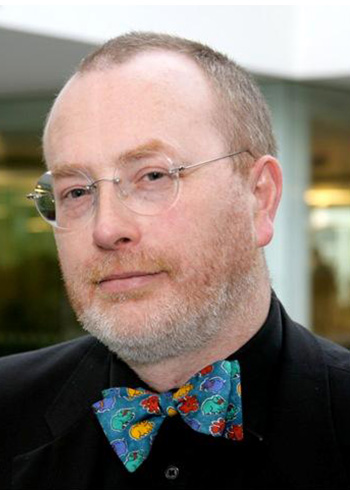The NHS won’t get much for spending £250m on AI if we don’t apply some judgment about where to apply it, says Stephen Black
 The NHS has announced a plan to spend £250 million on exploiting Artificial Intelligence to solve problems in healthcare. This could be another example of the first law of political spending announcements: don’t worry about real problems; focus the effort on things that get big headlines. Or it could lead to something good.
The NHS has announced a plan to spend £250 million on exploiting Artificial Intelligence to solve problems in healthcare. This could be another example of the first law of political spending announcements: don’t worry about real problems; focus the effort on things that get big headlines. Or it could lead to something good.
Which will it be?
The omens are not good. Stories about AI—like stories about Big Data—are dominated by hype, not sober assessments of benefit. And previous waves of investment in AI have usually led to disappointment. This started when the subject was first invented in the 1950s and DARPA invested a lot, it arose again in the late 1970s and early 80s with Japan’s 5th generation computing project followed by a big EU programme and the UK Alvey programme. All ended badly.
If the NHS is to get anything useful from this investment it needs to assess where the investment might lead to useful results. Thinking of AI as a magic bullet that can tackle any problem is a bad place to start as the inevitable result will be spending based on whichever idea is the most hyped.
And we are not short of hype. The recent success of self-trained AIs in learning how to play top quality chess and the strategy game “Go” has led to an explosion of unwarranted claims about how AI can learn how to solve complex problems “exponentially” quickly.
But, if we recognise how the successful current AIs work then we can get some insight into where and how they might be useful in the NHS. More importantly, we can identify where they are unlikely to work and avoid wasting money on over-hyped applications of AI.
Successful AIs are basically very efficient pattern-recognition engines. Sure, AlphaGo started with just the rules and built the dataset of games of Go itself, but the trick in learning to play well was in recognising the patterns in those games that led to victory.
This looks like a much bigger achievement than it is. The limitation is that the games AI has conquered have unambiguous rules and utterly clear criteria for victory. There may be an impossibly large number of possible games (more chess games than atoms in the known universe) but there are far fewer patterns that lead to success and learning AIs are good at finding them.
But the real world isn’t like that. Medical diagnosis is a little like playing chess on a board of unknown size, with an uncertain number of pieces, where you don’t know exactly where the pieces are, with rules that are unclear and sometimes change, and where even at the end of the game you are uncertain whether you have won.
No AI has ever demonstrated it can solve a problem like that. What patterns are there to learn from and how can the results be validated?
But there are many much narrower problems where an AI might well be able to learn the patterns. Examples include: interpreting breast scans to identify cancer; examining pictures of moles or skin lesions to identify melanomas; interpreting ECGs to identify atrial fibrillation.
The point of these examples is that the data are clear and the outcomes are fairly clear (eg radiologists have millions of historic breast scans and the results have been checked by other techniques). But don’t forget that current techniques are not perfect, as the statistics on overdiagnosis of breast cancer make clear.
AIs can recognise patterns where there are clear, relatively unambiguous patterns to recognise. The danger in using them for other cases is that we tend to trust the computer even when its results are not trustworthy. This is a major theme in Meredith Broussard’s book Artificial Unintelligence.
If we understand how current AIs work we have some basis for selecting where they might be useful to the NHS. And we should avoid the hype that says we can apply them to general problems like reducing waiting lists or sorting out service quality. Besides, we already know the answers to many of those problems and it is usually the lack of willingness to spend money, not a failure to understand the problem. Which makes spending a lot searching for a magic AI bullet look like a misguided idea.
Stephen Black is a data scientist who has been trying to solve practical problems in healthcare improvement for nearly two decades with a variety of healthcare clients from GPs to hospitals.
Twitter: @sib313
Competing interests: None declared
